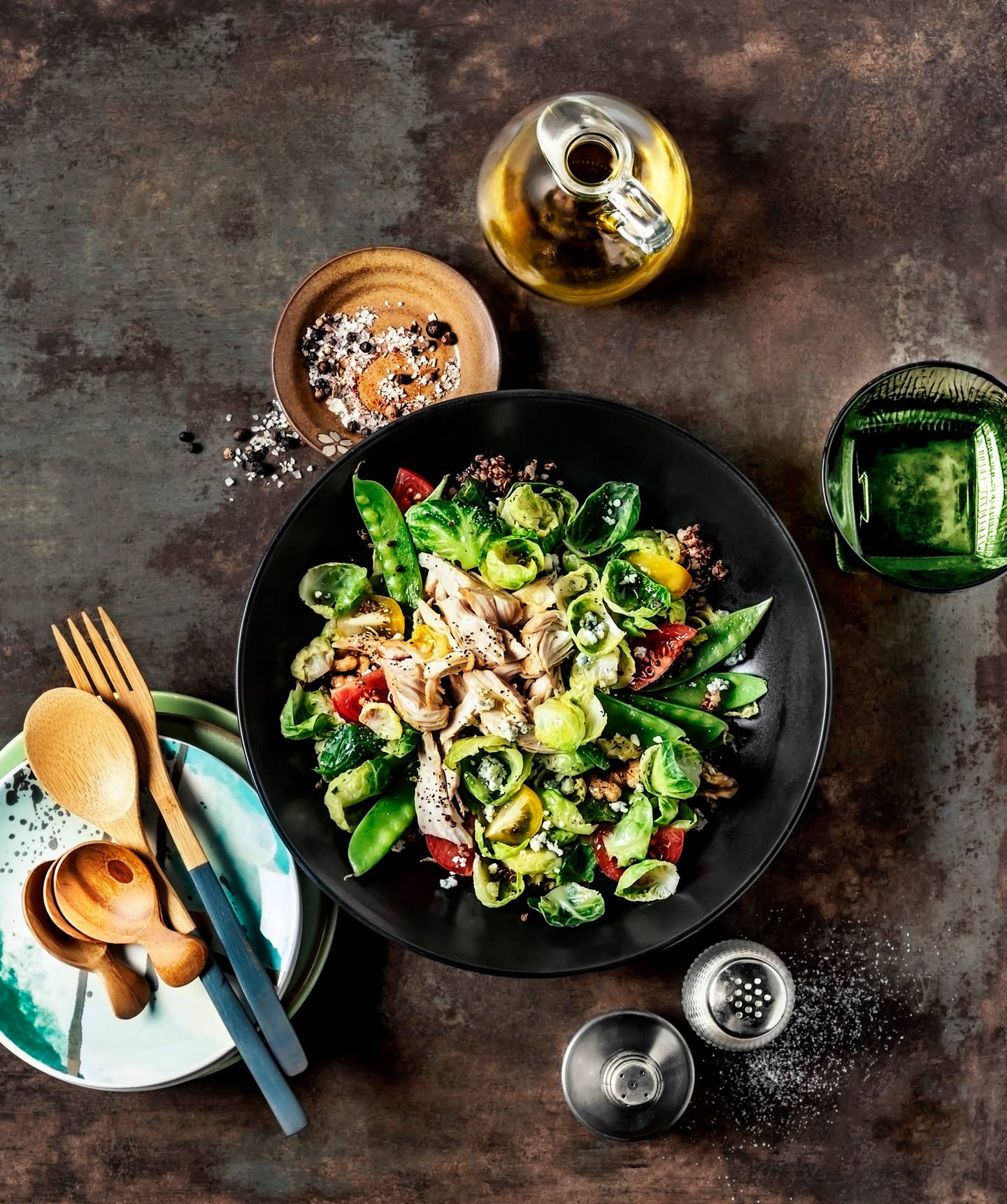
4 Tips For Better Sleep, Lower Blood Sugar & Stronger Immunity
Titgemeier is a health advocate on a mission to transform your health and change your life through personalized nutrition. With a Masters in Public Health Nutrition and Board Certification in Integrative and Functional Nutrition, Brigid was a Founding Dietitian at the Cleveland Clinic Center for Functional Medicine working under Dr. Mark Hyman. Previously she worked under Dr. Michael Roizen. She has worked with more than 4,000 clients in her functional nutrition and health consulting business, leveraging a data-driven personalized nutrition approach, advanced lab testing, education, and coaching.
Here are her 4 ways to use food as medicine to destress, sleep better, lower blood sugar, and boost immunity:
1. Food as Medicine for Destressing
The goal is to activate your parasympathetic nervous system or your "rest and digest" state of feeling calm and stress-free more frequently throughout the day, to help offset your "fight or flight" response. First, identify moments when you would ordinarily reach for a bag of chips, a donut, or other processed food full of unhealthy fat, added sugar, and salt. Instead, head that moment off by giving yourself an alternative activity. Tell yourself you are going to bring healthy breathing into your body as a way of lowering your stress and getting back in touch with your healthy resilience.
Use this breathing exercise to lower stress: Focus on becoming more resilient to the stress you are experiencing by layering in mini bursts of stress-reducing practices into your day! I recommend incorporating breathing practices like the 4, 7, 8 breathing technique, developed by Dr. Andrew Weil. You will inhale through your nose for four seconds, hold at the top of the inhale for seven seconds and exhale through your mouth, making a swoosh sound, for eight seconds. Do this for five rounds three times per day as a place to start.
2. Food As Medicine for Immune-Boosting
Eat a variety of colorful foods in your diet, aiming for at least three different nature-derived colors per meal. Every single nature-derived color of the rainbow has different immune-modulating properties. That means carrots and a green and yellow squash all sit happily next to each other on your plate, or make a big salad with chickpeas, soybeans, and red peppers. Every time you add a color you are strengthening the immune-boosting by adding more antioxidants, vitamins, minerals, and other vital nutrients in your meal.
3. Food as Medicine for Losing Weight and Lowering Your Blood Sugar
I use what I call an "Optimal Plate Method" to help keep your blood sugar balanced. This is important even if you do not have diabetes since studies have shown that blood glucose levels predict how severe COVID-19 symptoms are, when patients are hospitalized.
The Optimal Plate Method dictates that you should fill up at least half of your plate with non-starchy vegetables, and then add only a few thumbnails of healthy fats, eating 20 to 40 grams of high-quality protein and one serving of complex or starch carbohydrates. Remember that the more fiber-filled foods you add to your plate, the more steadily your body will process the carbs you eat, keeping your blood sugar nice and low, and not allowing insulin spikes that tell the body to store extra energy as fat. So load up on the vegetables!
4. How to Sleeping Better, and Enjoying a Restful, Restorative Night
Research shows that when you sleep, your body repairs your cells, and promotes the formation of your immune memory (so it can recognize an unknown or new invader quickly and mount a defense), and decreases the production of inflammatory cytokines. One way to get high-quality sleep is to set a bedtime that allows for 7-9 hours of sleep per night without needing an alarm, so get to bed earlier if you are struggling to wake up in the morning, and stick to that bedtime most nights. This helps program your circadian rhythm to know when to begin winding down.
Food as Medicine for Better Sleep: If you think" No way I can get to sleep earlier, you just need to practice it. Create an evening ritual that allows you to unwind and achieve a deeper stage of restorative sleep. This may include a bedtime tea (without caffeine) with adaptogenic herbs, or take an Epsom salt bath, or relax tense muscles by gently using a foam roller, or you can incorporate an evening meditation, to breathe deeply and shed the stressors of the day.
For more information on how to use food as medicine see my Healthy Immunity Guide.
More From The Beet






